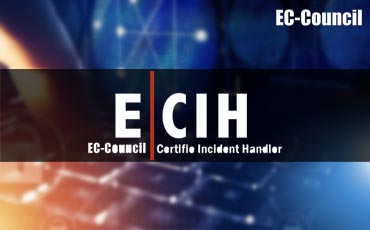Eccouncil Web Application Hacking and Security (WAHS) Exam Voucher
₹45,000.00
Since there is a continuous rise in the number of incidents of hacking activities going on with every third organization of the world, knowingly or unknowingly, we genuinely require an efficiently operational cyber army of skilled manpower technically equipped with every minor to major fundamental of cyber security. In this regard, the Web Application Hacking Security Course from the house of EC-Council is working at its best version to deliver quality education to all the participating learners.
So far, Craw Security, the best cyber security training institute in India, offers value-added EC-Council WAHS Certification basics from top-notch tutoring mentors having many years of authentic experience in providing the same category of knowledge to all learners in many reputed institutions across India.
- Eccouncil WAHS Exam: Certified Web Application Hacking Security (WAHS)
- What is ECIH v2 Exam Cost: $100 (USD)
- ECIH v2 Exam Duration: 6 Hours
- Exam Type: Performance-based
- ECIH Passing Score: 60%
Description
Web Application Hacking and Security (WAHS) Course Overview
The Certified Web Application Security Professional, widely known as WAHS, is a course that teaches students about the various methods and techniques used to hack and secure web applications. The course covers topics such as SQL injection, cross-site scripting (XSS), cross-site request forgery (CSRF), and other types of web application vulnerabilities.
Additionally, this highly knowledgeable web application hacking course covers how to secure web applications against these types of attacks, including input validation, secure coding practices, and web application firewalls. Overall, the goal of this Certified Web Application Hacking Security (WAHS) course is to give students a comprehensive understanding of the current state of web application security and how to build and maintain secure web applications.
What is Web Application Hacking Security (WAHS)?
Web Application Hacking and Security (WAHS) is a constantly evolving field, with new techniques and vulnerabilities being discovered on a regular basis. EC-Council, a well-known cyber security supergiant, is sincerely offering this primetime Certified Web Application Hacking Security (WAHS) course under the splendid guidance of world-renowned experts as trainers and mentors.
Moreover, this WAHS Certification covers the latest techniques and methods used to hack and secure web applications. As the field of web application security is constantly evolving, the course content is regularly updated to reflect the latest developments. In addition, the current course content covers the most recent and widely used attacks and vulnerabilities, such as:
- Injection attacks: SQL injection, NoSQL injection, and command injection attacks are covered in detail.
- Cross-site scripting (XSS): The course covers both stored and reflected XSS attacks and how to prevent them.
- Broken authentication and session management: The course covers how to exploit and prevent common vulnerabilities such as weak session IDs, password cracking, and session hijacking.
- File inclusion vulnerabilities: The course covers how to exploit and prevent Local File Inclusion (LFI) and Remote File Inclusion (RFI) vulnerabilities.
- Security for web services and APIs: The course covers the latest techniques and vulnerabilities in web services and APIs such as SOAP and REST.
- IoT security: The course covers the latest techniques and vulnerabilities in IoT devices and how to secure them.
- Security for cloud-based web applications: The course covers the latest techniques and vulnerabilities in cloud-based web applications and how to secure them.
- Additional Materials: The course also covers the latest tools and techniques for ethical hacking, penetration testing, and vulnerability assessment.
Benefits of EC-Council WAHS Certification
There can be several highly valued benefits of EC-Council Web Application Hacking Security Certification that can provide primetime advantages to a learner whosoever is willing to start a fantastic career in this trajectory through the high-profile mentorship of Craw Security, the best cybersecurity training institute in India.
Here are a few examples of recent developments in the field of web application security:
- Cloud security: As more and more web applications are deployed on cloud infrastructure, there has been an increased focus on securing these types of environments. This includes securing the underlying infrastructure and the web applications that run on top of it.
- API Security: With the increasing use of web APIs to connect different systems, the security of these APIs has become a major concern. This includes protecting against common API vulnerabilities such as injection attacks and broken authentication and access control.
- Container security: With the rise of containerization, there has been an increased focus on securing these types of environments. This includes securing the underlying container platform and the web applications that run in containers.
- AI-based attacks and defenses: With the growing use of AI in web applications, attackers are using AI-based techniques to evade detection and launch more sophisticated attacks. At the same time, defenders are using AI-based techniques to detect and defend against these attacks.
- Security for IoT applications: IoT devices are increasingly being connected to web applications, which has led to a greater focus on securing these types of applications. This includes protecting against vulnerabilities in the devices themselves, as well as in the web applications that they connect to.
Frequently Asked Questions
About EC-Council Web Application Hacking & Security Certification (WAHS) Exam
- Can a web application be hacked?
Yes, any web application can be hacked if not properly protected. In this regard, several hacking professionals can exploit security vulnerabilities such as weak passwords, unpatched software, SQL injection, malware, and cross-site scripting to gain access to sensitive data.
Therefore, it is important to actively monitor for security threats and take appropriate measures to protect your web applications from being compromised.
2. What is Web application security in cyber security?
Web application security is a branch of cyber security that focuses on protecting websites, web applications, and web services from malicious attacks. In addition, it involves the protection of websites and web applications from threats such as cross-site scripting, SQL injection, cross-site request forgery, and remote code execution.
Web application security also involves identifying, preventing, and mitigating such threats. Additionally, it involves implementing security measures such as access control, authentication, encryption, and logging.
3. How do you secure Web applications?
The following methodologies can certainly be utilized to secure a concerning web application:
-
-
- Use a Web Application Firewall: A Web Application Firewall (WAF) is a security solution that monitors, filters, and blocks malicious traffic and other malicious web-based attacks.
- Implement Strong Access Controls: Access controls determine who can access what resources on a system. Strong access controls should be implemented to ensure that only authorized users are granted access to sensitive information.
- Enable HTTPS: Hypertext Transfer Protocol Secure (HTTPS) is an encryption protocol that provides secure communication between a web server and a client. It ensures that all data transmitted between the two is secure and cannot be intercepted or tampered with.
- Use Encryption: Encryption is the process of encoding data in order to keep it secure. It prevents unauthorized parties from accessing confidential information.
- Monitor Application Activity: Regularly monitoring application activity helps to identify any malicious activity or suspicious behavior.
- Implement Security Testing: Security testing is a process that evaluates the security of a system or application. It can help to identify potential vulnerabilities, detect malicious code, and ensure that the application is secure.
-
4. What are web application vulnerabilities?
Web application vulnerabilities are weaknesses or flaws in the design, implementation, or configuration of a web application that allows malicious actors to gain unauthorized access to sensitive data, compromise system integrity, or otherwise, compromise the security of the application and its associated systems. Examples of web application vulnerabilities include SQL injection attacks, cross-site scripting attacks, and remote file inclusion attacks.
5. What are basic web application attacks?
These are some basic web application attacks as follows:
-
-
- SQL Injection
- Cross-Site Scripting (XSS)
- Cross-Site Request Forgery (CSRF):
- Insecure Direct Object Reference
- Denial of Service (DoS)
-
6. What is the most common way web applications are hacked?
The most common way web applications are hacked is through SQL injection attacks. In this type of attack, malicious code is injected into an application’s database, allowing the hacker to gain access to sensitive data and potentially execute malicious commands.
7. Why is Web application security important?
Web application security is important because it helps to protect sensitive data, such as customer information, from malicious attacks. It also helps to prevent unauthorized access to confidential data and the loss of confidential information due to malicious attacks.
Furthermore, web application security helps protect the reputation of organizations and the trust of their customers. Finally, web application security helps to ensure compliance with regulations and data privacy laws and protects organizations from legal liabilities.












Reviews
There are no reviews yet.